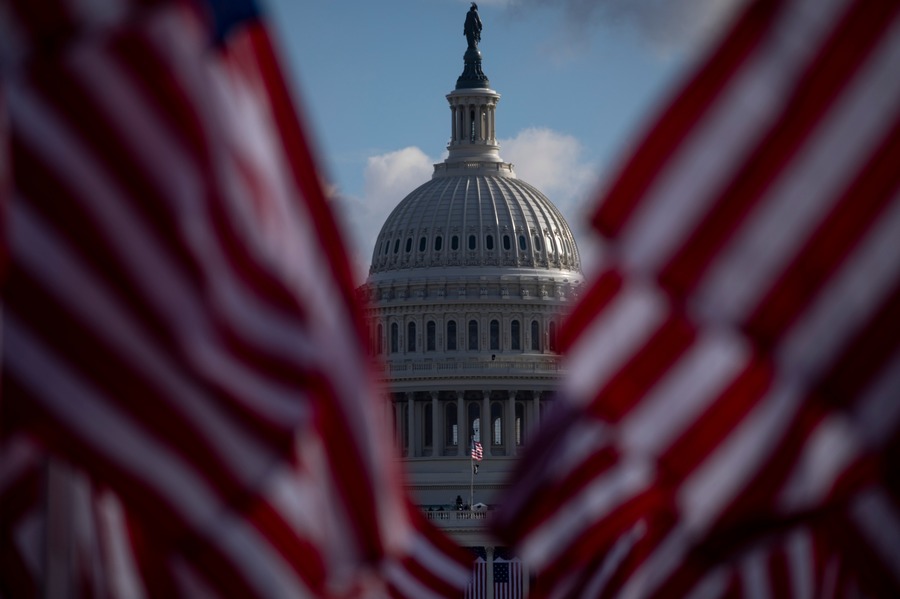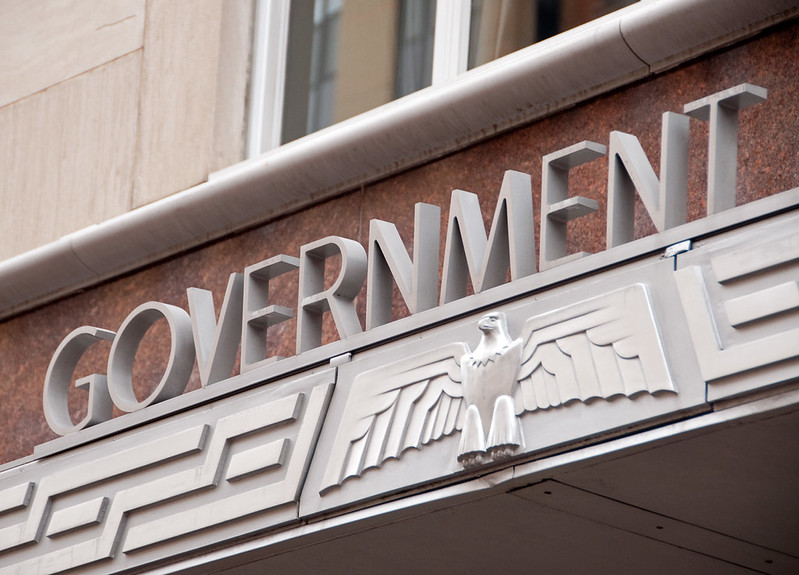Reductions in Force During Shutdowns: Easier Said Than Done
krakd.jpeg?sfvrsn=c6e2ba28_5)
Editor’s Note: This piece is an update to the author’s Sept. 29 piece entitled “Reductions in Force During Shutdowns”.
With the Senate's failure to pass stopgap legislation, the government has shut down. The Trump administration has made clear its intentions to use this shutdown as an opportunity to permanently reduce the size of the federal workforce.
What now?
First, the federal government will furlough an estimated 23 percent of its employees. Agencies are affected differently. The Environmental Protection Agency will furlough 88.6 percent of its workforce. By contrast, the Department of the Treasury intends to furlough only 2.2 percent of its workforce. The overall percentage, however, is significantly lower than past shutdowns, raising concerns that the government is not complying with the Antideficiency Act. During the 2019 shutdown, the Trump administration engaged in rather flagrant violations of the act. Even if the Trump administration is permitted to conduct reductions in force (RIFs) during a shutdown, there are likely separate violations of spending laws that have their own consequences.
Second, the issue of RIFs during the shutdown involves three separate questions: (a) Does a shutdown provide a bona fide reason for conducting a RIF under federal employment law? (b) Do federal agencies have the authority to engage in RIF planning during a lapse in appropriations? And (c) will the federal government be able to follow the proper RIF procedures?
I addressed the first question at length in a prior post. To summarize, a lapse in appropriations does not provide the administration with greater authority to engage in RIFs. Courts, however, defer to agencies’ determinations that a shortage of funds necessitates a RIF. Consequently, a court would likely uphold that a lapse in appropriations (and the additional risk of budget cuts following the appropriations process) is a legally permissible reason for initiating a RIF.
Nevertheless, the Antideficiency Act prohibits agencies from performing non-excepted activities during a lapse in appropriations. A recent Office of Personnel Management (OPM) memo says that “agencies are authorized to direct employees to perform the work necessary to administer the RIF process during the lapse in appropriations as excepted activities.” The memo does not explain which of the four categories of excepted activities RIF planning falls under.
As Eloise Pasachoff has said, shutdowns lend themselves to “creative lawyering.” The 1995 Office of Legal Counsel opinion on the matter defines the “necessary implications” exception as including "those minimal obligations necessary to closing [the] agency.” Likewise, the opinion includes “obligations necessary to discharge the President’s constitutional duties and powers.” The Trump administration believes that RIFs are necessary to manage a government shutdown and, therefore, fall within one of these exceptions.
This argument has no historical support. Over the past 45 years, federal agencies have never used RIFs to manage shutdowns and, therefore, history casts doubt on any claim that RIFs are necessary to manage a shutdown. Federal labor unions have filed suit to enjoin RIFs during the shutdown based on similar Antideficiency Act arguments. They argue that the Office of Management and Budget and OPM have misinterpreted the law and, therefore, their guidance is arbitrary and capricious under the Administrative Procedure Act.
Legal challenges under the Antideficiency Act may stand on firmer ground than those challenging the RIFs' bona fides. I do not know whether such challenges will succeed. I can envision some court accepting an argument that personnel management is a necessary function during a shutdown because an agency must (a) manage and oversee its non-exempt and furloughed employees during the shutdown and (b) prepare for any reduction in appropriations that may make it impossible for the agency to continue operating with its current staffing levels following the shutdown. The administration may argue that the agency has discretion to choose whether shutdown furloughs or permanent RIFs are necessary for “closing [the] agency” in response to a lapse in appropriations. Depending on the length of the shutdown, the courts may have an opportunity to weigh in on the scope of human resources functions permitted by the Antideficiency Act during a shutdown.
Some commentators have argued that recent amendments to the Antideficiency Act effectively prohibit federal agencies from using RIFs during a lapse in appropriations. The Government Employee Fair Treatment Act amended the Antideficiency Act to provide “[e]ach employee of the United States Government or of a District of Columbia public employer furloughed as a result of a covered lapse in appropriations shall be paid for the period of the lapse in appropriations.” Prior to the passage of this amendment, Congress was required to authorize back pay following each shutdown; the act makes back pay guaranteed and automatic. Some have argued that the automatic provision of back pay demonstrates Congress’s intent to limit the effects of shutdowns on federal workers and, therefore, the use of RIFs during a shutdown violates the spirit of those amendments.
The Government Employee Fair Treatment Act does not explicitly prohibit an agency from involuntarily separating employees during a lapse in appropriations. The statutory text is silent on this issue. The statute merely requires back pay for furloughed employees and does not address any other personnel matters related to those employees. OPM has provided guidance for how agencies can comply with the Government Employee Fair Treatment Act if they choose to initiate RIFs during the shutdown. Employees who are involuntarily separated will receive back pay through their date of separation. Although I agree with the commentators about the purpose of the amendments, I disagree that the amendments themselves prohibit RIFs.
Suppose the administration survives these Antideficiency Act challenges. Any RIFs during a shutdown would create a significant headache for the administration and expose it to a wide range of procedural challenges. Agencies have historically struggled to manage their workforces during shutdowns. Initiating RIFs during a shutdown only adds to the complexity and confusion, making it less likely that agencies will follow the proper notice and procedural requirements during a shutdown. Failure to comply with the proper procedures is the most common reason for invalidating RIFs. These cases, however, would be examined on a fact-by-fact basis.
The story becomes even more complicated once Congress passes and the president signs appropriations into law. RIFs would deprive agencies of employees they will need once appropriations resume. Because employees separated through a RIF enjoy reemployment rights, agencies would be required to give them priority for job openings. In practice, this means the administration would likely need to rehire many of the same employees to carry out congressionally funded programs. Refusing to do so—and leaving appropriated funds for salaries unused—could amount to unlawful impoundment. Again, these cases are fact-specific.
In short, RIFs are a poor policy tool for managing a shutdown: They are too complex, too permanent, and ill-suited for something as temporary as a lapse in appropriations.
This issue reflects a broader pattern in the current administration. Both Congress and the courts have granted presidents and agencies wide discretion over personnel management, and courts rarely scrutinize those decisions. Such deference may be justified when executive officials act within the bounds of good-faith management, but it becomes a weapon in the hands of individuals driven by deconstructivist tendencies. The present moment shows how heavily the American system relies on unwritten norms to safeguard administrative capacity and protect the federal workforce. Lasting reforms are needed to install guardrails that can meaningfully check abuses of discretion. Without them, the stability and effectiveness of the civil service will remain vulnerable to partisan manipulation.





